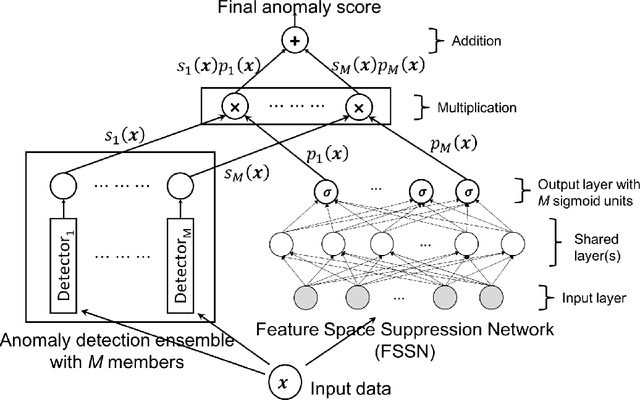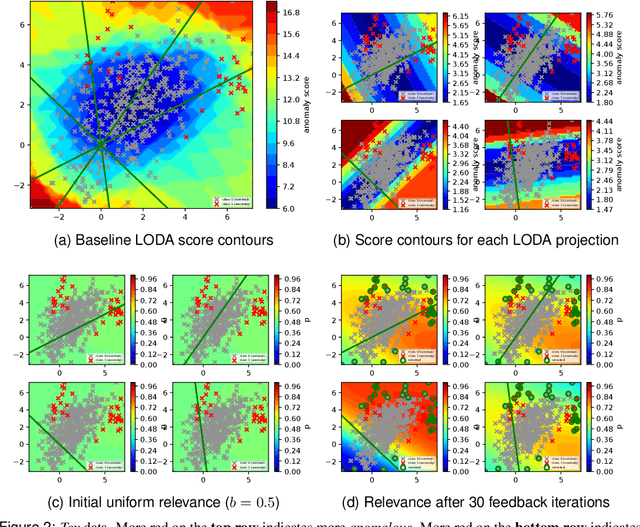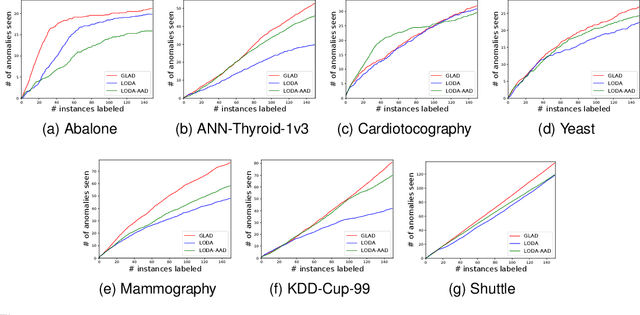GLAD: GLocalized Anomaly Detection via Active Feature Space Suppression
Paper and Code
Oct 12, 2018


We propose an algorithm called GLAD (GLocalized Anomaly Detection) that allows end-users to retain the use of simple and understandable global anomaly detectors by automatically learning their local relevance to specific data instances using label feedback. The key idea is to place a uniform prior on the relevance of each member of the anomaly detection ensemble over the input feature space via a neural network trained on unlabeled instances, and tune the weights of the neural network to adjust the local relevance of each ensemble member using all labeled instances. Our experiments on synthetic and real-world data show the effectiveness of GLAD in learning the local relevance of ensemble members and discovering anomalies via label feedback.
 Add to Chrome
Add to Chrome Add to Firefox
Add to Firefox Add to Edge
Add to Edge